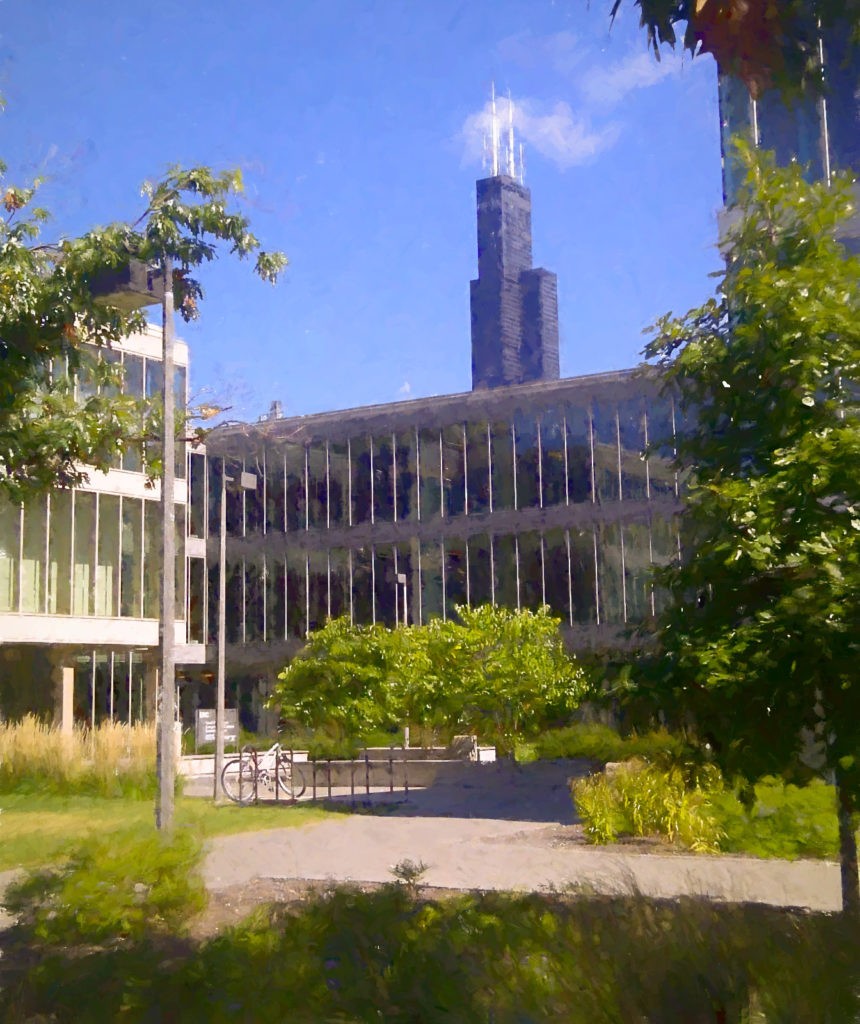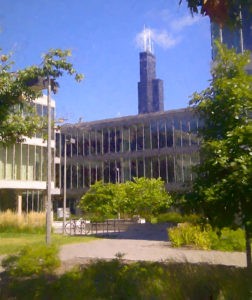
As a public educational institution, the University of Illinois-Chicago has a constitutional duty to preserve and promote freedom of speech on campus. Yet in several recent incidents, the university has done exactly the opposite—blatantly denying free expression to both students and faculty when that expression is at odds with the radical leftist paradigm.
UIC law professor Jason Kilborn found this out the hard way when he included a question on a December 2020 law exam that included redacted references to racist and sexist slurs. Ironically, the question concerned employment discrimination. Students were asked to consider a hypothetical example in which an employee was called “a ‘n____’ and ‘b____’ (profane expressions for African Americans and women)” as evidence of discrimination in a lawsuit. Kilborn notably did NOT actually spell out the slurs—which would have also been within his rights—but instead used the first letter and dashes as quoted above. But even this minimal reference to the existence of these slurs was enough to set off the campus speech police.
The Black Law Students Association put out a statement on social media claiming that Kilborn’s reference to these redacted slurs “shocked students and created a huge distraction from taking the exam.” The Association also created a petition demanding that Kilborn be removed as chair of the academic affairs committee and also from his other committee appointments.
In conversations with the university administration, Kilborn offered to send a letter of apology to his students, but even that was not sufficient debasement in the eyes of the university. Showing zero spine, UIC promptly yielded to the mob and suspended Kilborn, requiring him to undergo diversity trainings in order to return to the classroom. In a twist so ironic it almost defies belief, the readings that Kilborn was assigned to complete for this diversity training used a censored form of the same ethnic slur which had prompted his suspension in the first place.
“They assign me to do this online sort of diversity course… But they also, of course, wanted to make it more burdensome and painful for me, and so they assign me a series of these supplemental readings,” Kilborn told CampusReform.org. “[UIC has] subjected me to a year-long relentless campaign of torment because I wrote “N” space on my exam, and now, the very first reading that you give me says “N (space) in it,” he said.
Kilborn has filed a lawsuit against UIC alleging violations of his academic freedom, UIC policy, and several constitutional amendments.
“I don’t think that the University could give me a settlement offer that I would accept,” he said in an interview. “I’m not interested in settling… I want them to be told in no uncertain terms: There’s this thing called the First Amendment… [UIC] obviously [is] not familiar with it… Well, I’ve got news for you, UIC: This lawyer is not going to be pushed around.”
If a law professor at UIC can be suspended for using a redacted slur, students at the university have even fewer rights. Members of the conservative student group, TPUSA, were threatened with arrest when they set up a table to distribute leaflets on campus without first reserving a space.
Video of the incident shows that the TPUSA students were approached by Ruby Lepe, assistant director of building management, who ordered them to leave.
“You have to make a reservation,” Lepe declared. “All this space here, this space inside the building, and the grassy areas, are reserved for meetings and conferences.”
When a TPUSA member objected that, “You shouldn’t have to reserve a space on a public property,” Lepe responded, “This isn’t public property, it’s university property,” ignoring the fact that as a public university, UIC is bound by the First Amendment.
The Foundation for Individual Rights and Expression (FIRE), a nonpartisan non-profit organization that defends free speech and free thought in American society with a particular emphasis on college campuses, gave UIC a “yellow light” rating for enacting policies which restrict a “limited amount” of protected expression, or “by virtue of vague wording, can too easily be used to restrict protected expression.”
According to FIRE, “At public institutions” such as UIC, “yellow light policies are unconstitutional.”
